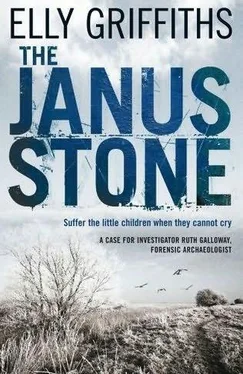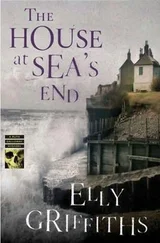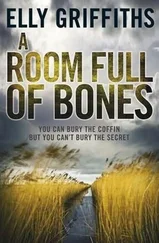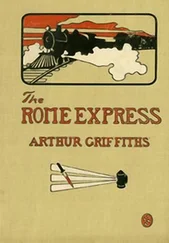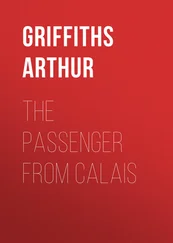Roderick Spens doffs his hat with a flourish. ‘Delighted to meet you.’
Ruth smiles. She thinks she prefers Sir Roderick’s interest to Edward’s barely concealed impatience.
‘They say that a church used to stand here,’ Roderick Spens explains. ‘Probably destroyed during the dissolution of the monasteries, gravestones broken up, stained glass smashed, gold and silver melted down.’
Ruth thinks of the workman smashing the windows in the conservatory and the momentary regret she had felt for those coloured pieces of glass, for the destruction of anything that was once prized. ‘We found a chalice yesterday,’ she says, ‘probably 1400s or thereabouts. Some beautiful work on it.’
Sir Roderick’s eyes gleam. ‘Now that I’d like to see.’
‘It’s back at the university,’ says Ruth, ‘but I’m sure we could arrange-’
‘Now, Dad,’ says Edward warningly, ‘we don’t want to bother Miss Galloway.’
‘Dr Galloway,’ corrects Ruth mildly, ‘and it’s no bother.’
‘Strange to think, Dr Galloway,’ the older man leans forward, deliberately, it seems, excluding his son, ‘that this church was destroyed by Henry the Eighth yet later became a Catholic children’s home.’
‘Yes.’ Ruth is not particularly interested in the age-old struggle between Catholic and Protestant. To her, all religions are as bad as each other. Though at least Catholicism has nicer pictures.
‘Do the police think these bones are linked to the home?’ asks Edward.
‘As far as I know they’re keeping an open mind,’ says Ruth. ‘Now if you’ll excuse me…’
She turns back to the bones and, after a second or two, Edward Spens takes his father by the arm and leads him away.
Nelson does not arrive until late afternoon, by which time Ruth has finished cataloguing the bones and is helping Trace in one of the trenches at the back of the house. They have found some Roman pottery and what looks like a signet ring. So this site, like the one on the hills, was also once Roman. Hardly surprising, thinks Ruth, and yet the link disturbs her slightly.
Nelson is accompanied by Clough and a sandy-haired man with a furrowed brow under his hard hat. Clough, Ruth is interested to note, peels off immediately to talk to Trace. Nelson and the other man approach Ruth.
‘Dr Ruth Galloway,’ Nelson’s introductions are always brusque, ‘Kevin Davies. Mr Davies was once resident at the Sacred Heart Children’s Home.’
‘I’m afraid there’s not much left of the original building,’ says Ruth. And there will soon be less, if Edward Spens has his way.
Davies has a misty, far-away look about him. ‘This was the conservatory,’ he says, ‘and over there we had a swing and a tree house. There was a wishing well too. We used to play football on the lawn. Father Hennessey was a really good player. He could have been a professional.’
Nelson rolls his eyes. The last thing he needs is to be told that Father Hennessey, on top of all his other virtues, was Norfolk’s answer to Pelé.
‘Do you remember a pet cemetery?’ ask Ruth. ‘Or anywhere where pets might have been buried.’
Davies looks at her with mild blue eyes. ‘No. Sister James was allergic to animals so we couldn’t even have a cat. We had a canary though. Lovely cheerful little thing.’
‘Why don’t you have a look round, Mr Davies,’ says Nelson. ‘Refresh your memory.’
Davies wanders off and Ruth climbs out of the trench. She sees Nelson looking at her strangely and realises that she must, by now, be both sweaty and mud-stained. Well, there’s not much she can do about it. Her back is killing her too.
‘If I have to hear once more that Father Hennessey is a saint who walks on water in his spare time, I’m going to go mad,’ says Nelson as they walk away from the trench.
‘Bit of a fan, is he?’ asks Ruth, indicating Davies, who is staring at the ruins of the kitchen garden with a rather shell-shocked look on his face.
‘A fan! According to him Father Hennessey is a combination of Mother Teresa, Nelson Mandela and Winnie-the-bloody-Pooh.’
Ruth laughs. ‘Have you met him, this Father Hennessey?’
‘Yes.’
‘What’s he like?’
Nelson hesitates. ‘Seems a nice enough chap. Big, strong man he must have been when he was young. Strong character too, I think. Razor sharp.’
‘So, any suspicious deaths at the children’s home?’ asks Ruth lightly. To her surprise, Nelson answers soberly, ‘Yes.’
‘Really?’
‘Well, a disappearance. Two children. Martin and Elizabeth Black. Vanished without a trace in 1973.’
‘How old?’
‘Twelve and five.’
They look at each other, thinking of the little skeleton under the door.
‘Do you think it’s her?’ asks Ruth.
‘It’s possible, isn’t it?’
Ruth thinks of the size of the bones. ‘Yes. But that would mean…’
‘That she was killed by someone at the home? Yes.’
‘Do you really think that might have happened?’
‘Well, we won’t know until you’ve done your dating but… I don’t know, Ruth. There’s something funny about this place. Something’s not right. Something smells funny. And what was all that about a pet cemetery?’
‘We found the skeleton of a cat buried by the back wall.’
‘Probably just the final resting place of some old moggy.’
‘Its head was cut off. No sign of the skull.’
Nelson whistles soundlessly. ‘Bloody hell. Do you think there’s any connection?’
‘Probably not but I’ll have a look at the bones back at the lab.’
‘This case gets wackier and wackier.’
‘Well,’ says Ruth, not wanting to be drawn, remembering her ridiculous fears yesterday, ‘there could be all sorts of explanations for the bones. In fact, considering that there was supposed to be a churchyard somewhere around here, it’s surprising we haven’t found more.’
‘But a decapitated cat,’ Nelson raises his eyebrows, ‘that doesn’t strike you as odd?’
‘There’s sure to be a logical explanation,’ persists Ruth. Nelson is still looking at her oddly. She can feel herself going red. Ruth has always had trouble with blushing and it seems to have got worse during the last few weeks. Feeling the blood pumping into her cheeks, she ducks her head. ‘Edward Spens was here earlier,’ she says. ‘With his dad.’
At least this diverts Nelson’s attention away from her. He kicks viciously at an upended paving stone.
‘Interfering bastard,’ he says. ‘What did he want?’
‘To interfere, I suspect. His dad was sweet though. Very interested in history. He was talking about the church that was meant to have been here.’
‘Father Hennessey mentioned it too. Said it used to cure lepers.’
Ruth thinks of St Hugh’s decapitated skull, performing miracles on its own, of St Bridget’s cross, holy fires and sacred wells. Fairy tales all of them but, like fairy tales, curiously compelling.
‘They’re Catholics, you know,’ says Nelson suddenly, ‘the Spens family. Edward Spens was telling me. His grandfather converted sometime in the fifties.’
‘I thought there was something odd about him,’ says Ruth.
They are walking back towards the archway, where Kevin Davies is now standing, looking sadly at the devastation all around him. Ruth stops and takes a gulp from her water bottle.
Nelson puts his hand on her arm. ‘Are you all right?’
The sudden kindness in his voice makes the blood rush to her head again.
‘Fine,’ she snaps, ‘just hot.’
‘Hot?’ says Nelson. ‘It’s never hot in Norfolk.’ And he bounds away across the rubble.
11 June Day sacred to Fortuna Virgo
I suppose I have always known that I am special. Even before all this happened and the curse fell upon us, I always knew that the Gods had something special in store for me. It’s not just that I am clever (though my Intelligence Quotient is in excess of 140), it is more that I understand. When I read Pliny or Catullus the gods are not just names to me, they are real. Their power and might overshadows all that comes after – the puny love-feast of Christianity, the ridiculous modern gods of horoscopes and hypnotism and the moving pictures. The Roman gods are logical and that is why I like them. If you kill, you must make amends in blood, a life for a life. Blood can be cancelled out but only by blood. The gods demand their sacrifices but, unlike modern gods, they do not demand more than their due. If you sacrifice correctly, the past is wiped out, made clean.
Читать дальше
